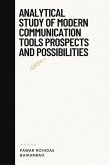A little background information. In the 1930s and early 1960s, there was a Green Revolution. Due to the growing population and demand, developing countries, such as India, resorted to using synthetic chemicals, such as pesticides and fertilisers, along with hybrid seeds known to yield more. Increasing health consciousness has led to organic food knocking on every door and making its way into kitchens everywhere. A holistic approach to organic food in the Indian environment starts at the farm and ends at the consumer's plate. Research work is successful when it is designed, planned, and implemented properly. Considering how the study will be conducted is part of the plan for a research study. In this phase, decisions are made, divergent thinking occurs, and conceptual frameworks are developed. The definition of concepts in operational terms requires knowledge of statistical methods, which include the formulation of hypotheses and their alternatives, experimental design, estimation theory and other techniques for data collection and planning. It is the design of this study that has been discussed in this chapter. 1








